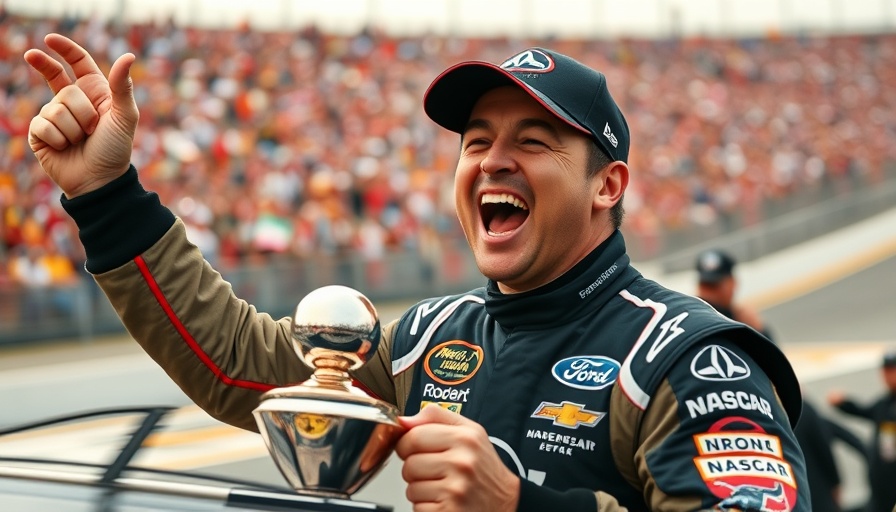
The Thrilling Victory at Iowa: A Testament to Strategy and Teamwork
William Byron’s recent win at the Iowa Corn 350 underscored the ever-present importance of strategy in NASCAR racing. The race's outcome hinged not just on speed, but on a carefully executed fuel-saving strategy that saw Byron deftly manage his No. 24 car over the closing laps. As cautions flew, Byron and his crew chief, Rudy Fugle, made a critical decision that altered the race's dynamics, showcasing how teamwork and tactical adjustments can lead to victory.
Understanding the Impact of Fuel Strategy in NASCAR
Byron's ability to stretch his fuel mileage for 144 laps is a noteworthy feat that exemplifies fuel strategy's role in modern NASCAR. It emphasizes a growing trend where racing teams must balance speed with the endurance of their vehicles. This race did not merely showcase Byron’s talent; it highlighted the meticulous planning and frequent adjustments made by both the crew and the drivers. While some drivers, like Chase Briscoe, had different pit stop strategies, Byron's gamble paid off, reiterating that in NASCAR, strategy can sometimes trump raw horsepower.
Historic Cautions and Their Influence on Racing Outcomes
The Iowa Corn 350 was characterized by a flurry of caution flags—12 in total—tying it with Texas Motor Speedway for the most cautions of the year. Each caution altered the race's momentum, giving rise to a series of opportunistic races within a race. With the increasing complexity of race strategy, teams must be adaptable. For instance, Byron’s pit crew reacted swiftly to the evolving circumstances, influencing both Byron’s and Briscoe’s strategies, a reminder of the unpredictable nature of motorsport.
Byron's Journey: A Comeback Story
This victory marks a redemption arc for William Byron, who hadn’t won since successfully claiming the Daytona 500 for the second consecutive year. Losing races at both Michigan and Indianapolis had tested his resolve, resembling the unpredictability and emotional rollercoaster common in a race season. Byron’s triumph underscores how resilience and tenacity are just as crucial as physical skill behind the wheel.
What's Next: Looking Ahead in the NASCAR Season
With Byron's win, the playoff race has been further solidified, but several positions remain contentious. As Byron takes the lead in regular-season points, the upcoming races will prove to be decisive for qualified spots in the playoffs. With only three races left before the playoffs commence, every win counts. The looming competition from Chase Elliott and a hungry group of challengers like Ryan Preece and Tyler Reddick promises a thrilling run to the finish.
The Bigger Picture: NASCAR's Evolving Landscape in Fuel Efficiency
Byron's win at Iowa provides insight into a broader discussion within the automotive and racing communities—fuel efficiency and sustainability. NASCAR has begun to face increasing pressure to integrate more eco-friendly practices into its operations. This event, where fuel strategy was a focal point, highlights how crucial it is for teams to not only compete in speed but also innovate how they think about fuel consumption—a topic that resonates well with today's environmentally-conscious audience.
As the NASCAR season progresses, fans, teams, and automotive enthusiasts alike will be watching closely. With evolving technologies and a focus on sustainable practices, the thrill of racing is not only in the speed but in how drivers and teams navigate the challenges of the modern racetrack. As Byron demonstrated, optimal performance requires both agility and foresight, promising an exhilarating continuation of the NASCAR Cup Series.
 Add Row
Add Row  Add
Add 




Write A Comment